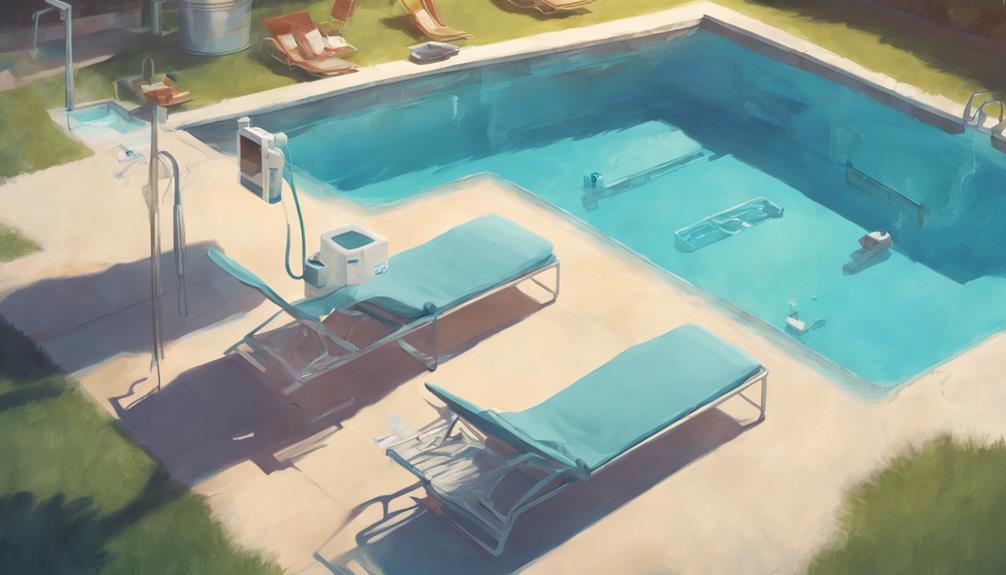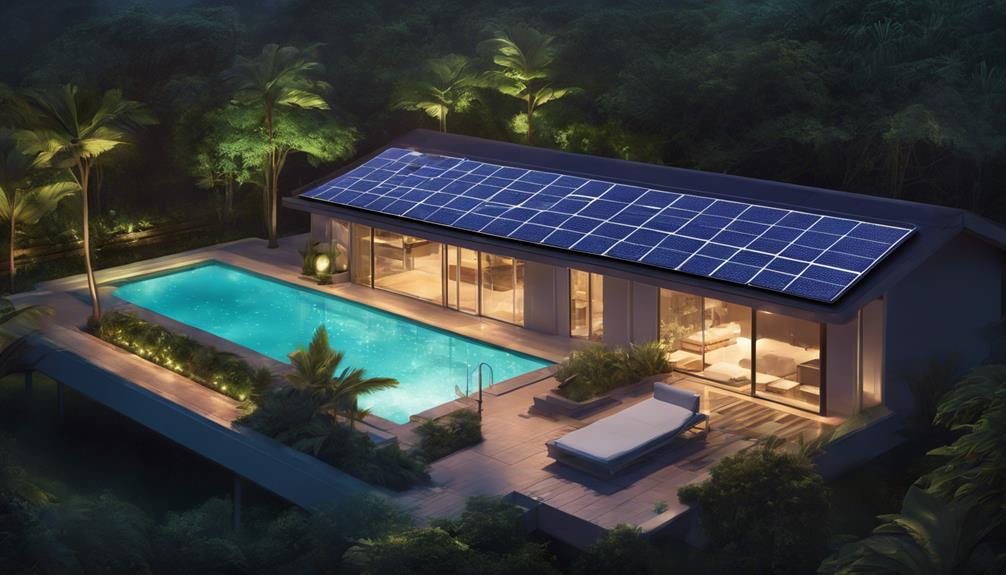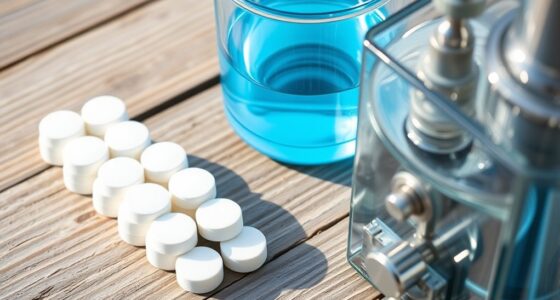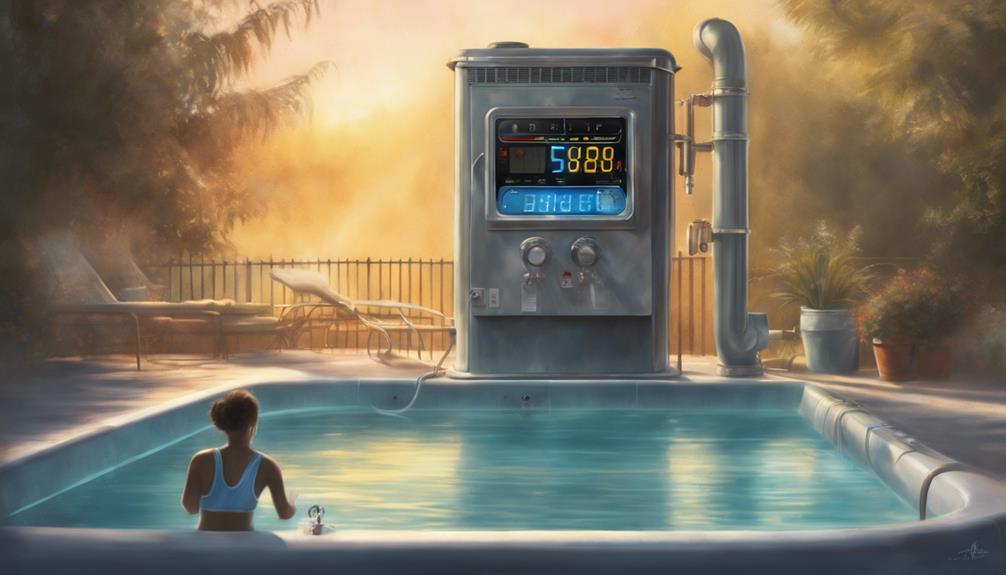Understanding the vital role of chlorine is crucial for pool owners. Chlorine acts as a powerful disinfectant, eradicating bacteria and algae in pools. Maintaining chlorine levels between 3 to 5 ppm is essential for safety and water clarity. Various forms like Calcium Hypochlorite and Sodium Hypochlorite fulfill specific sanitation needs. Ensuring proper dosing and pH levels is critical for effective disinfection. Observing safety precautions like correct storage and handling with protective gear is imperative. Proficiency in these chlorine basics is essential for effective pool upkeep and a secure swimming environment.
Key Takeaways
- Maintain chlorine levels between 3 to 5 ppm for pool safety.
- Different forms of chlorine serve various pool sanitation purposes.
- Proper chlorine dosage ensures effective disinfection and clarity.
- Store chlorine safely, away from children, and handle with protective gear.
- Never mix chlorine with other chemicals to prevent dangerous reactions.
Chlorine Basics
Understanding the fundamental properties of chlorine is vital for pool owners seeking to maintain a safe and hygienic swimming environment. Chlorine, present in pools and drinking water, acts as a potent disinfectant.
A well-maintained pool should not emit a strong chemical odor, indicating proper chlorine levels. Essential for pool maintenance, chlorine eliminates harmful bacteria, germs, and algae, ensuring clean and clear water.
Different forms of chlorine, such as Calcium Hypochlorite and Sodium Hypochlorite, serve various purposes in pool sanitation. Maintaining the correct chlorine levels, typically between 3 to 5 ppm, is essential for pool safety.
Chlorine Production
Various chemical forms of chlorine, including Calcium Hypochlorite, Chlorinated Isocyanurates, and Lithium Hypochlorite, are utilized in the production of this essential pool maintenance chemical. These forms of chlorine are essential for disinfecting swimming pools and ensuring water safety.
Calcium Hypochlorite is commonly used as a solid form of chlorine, while Chlorinated Isocyanurates are prevalent in tablet form. Lithium Hypochlorite, on the other hand, is a less common but effective option.
Sodium Hypochlorite, found in liquid bleach, is another important form used for pool sanitation. Gaseous chlorine, although highly toxic, is also employed in specific pool cleaning processes. Understanding the different chemical forms of chlorine is critical for pool owners to maintain a safe and hygienic swimming environment.
Chlorine Function
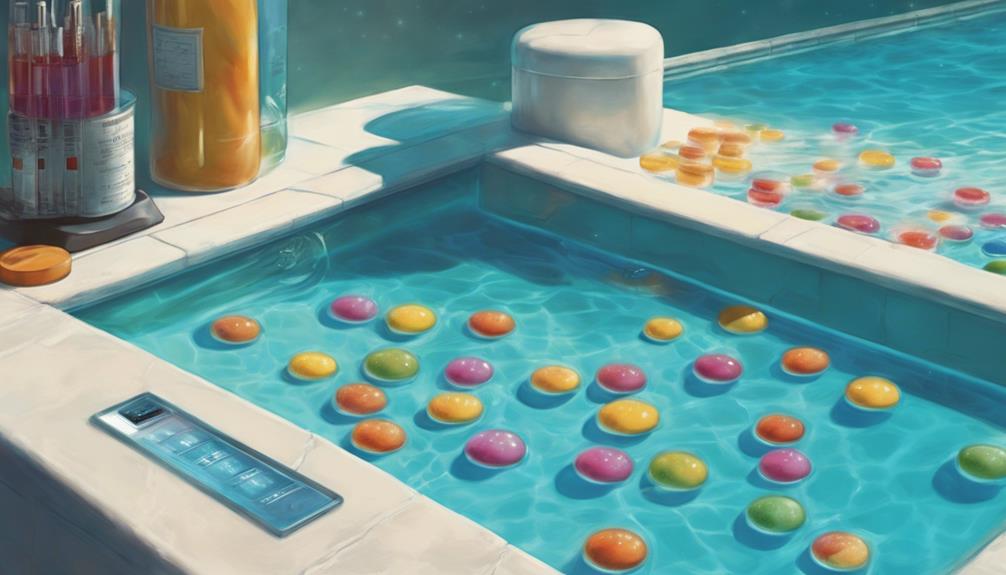
Chlorine plays a pivotal role in pool maintenance by effectively eliminating harmful bacteria and germs from swimming pools. Here are three key functions of chlorine in pool water treatment:
- Disinfection:
Chlorine acts as a powerful disinfectant by killing bacteria and algae present in the pool water, guaranteeing a safe swimming environment for pool users.
- Oxidation:
After disinfecting, chlorine oxidizes and breaks down organic materials and pollutants, such as dirt and debris, assisting in maintaining water clarity and quality.
- Regulatory Compliance:
State regulations typically require a minimum chlorine residual of 1.0 ppm in pools to safeguard public health and prevent waterborne illnesses. Adhering to these standards is essential for pool owners to ensure a safe and hygienic swimming experience.
Chlorine Dosage
Maintaining the appropriate chlorine dosage in your swimming pool is essential for ensuring effective disinfection and water clarity. Swimming pools typically contain 3 to 5 ppm of chlorine to effectively kill bacteria and algae.
The amount of chlorine needed depends on the pool size in gallons, with tablets being a common form of chlorine dispensing. It is vital to maintain pH levels between 7.2 to 8.0 for best chlorine efficacy.
Calculating the pool volume is essential to determine the number of tablets needed for proper disinfection. By following these guidelines and ensuring the correct chlorine dosage, pool owners can enjoy a clean and safe swimming environment throughout the pool season.
Chlorine Safety
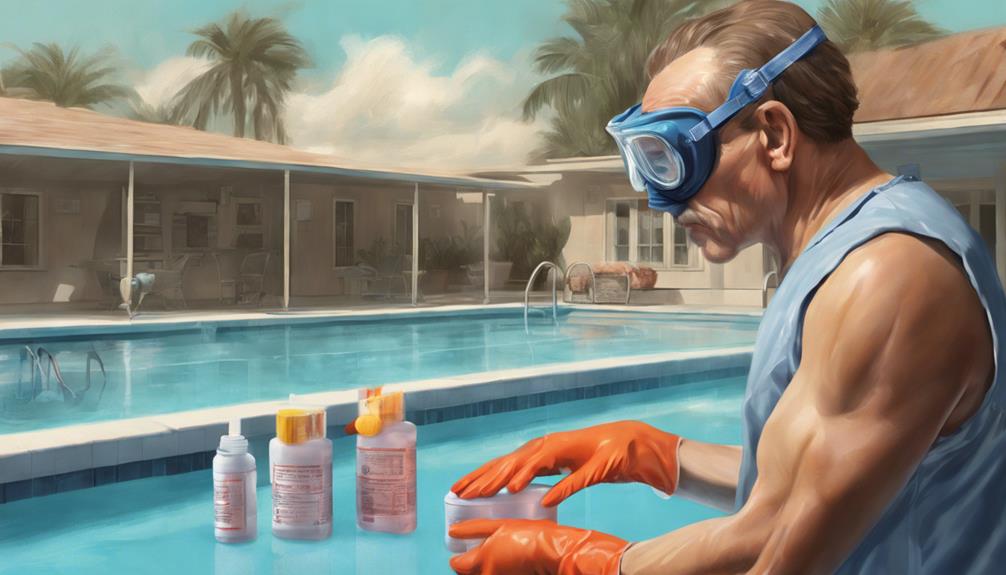
Adequate knowledge and conscientious handling of pool chemicals are paramount for ensuring a safe swimming environment. When it comes to chlorine safety, pool owners must prioritize the following:
- Proper Storage:
Store chlorine in a cool, dry, and well-ventilated area away from sunlight and moisture to prevent chemical reactions or leaks.
- Safe Handling:
Always wear protective gear such as gloves and goggles when handling chlorine to avoid skin and eye irritation. Follow manufacturer instructions for accurate dosage and application.
- Preventing Accidents:
Keep chlorine out of reach of children and pets, and never mix it with other chemicals to prevent dangerous reactions. In case of spills or accidents, follow emergency protocols and seek assistance if needed.
Frequently Asked Questions
Can I Safely Swim in a Pool With Chlorine?
Swimming in a pool with chlorine is generally safe if chlorine levels are within recommended ranges. Chlorine effectively disinfects pools by eliminating harmful bacteria and germs, ensuring a clean and safe swimming environment for pool users.
How Often Should I Shock My Pool With Chlorine?
For best pool maintenance, shocking with chlorine should occur every week to two weeks, depending on usage and environmental factors. Regular shocks eliminate contaminants and prevent algae growth, ensuring a safe and crystal-clear swimming environment.
Is It Safe for Pets to Swim in a Chlorinated Pool?
Swimming in a chlorinated pool is generally safe for pets, but precautions are necessary. Rinse pets after swimming to avoid skin irritation. Make sure pets do not drink pool water as chlorine ingestion can be harmful.
Can I Use Chlorine Tablets in an Above-Ground Pool?
Utilizing chlorine tablets in an above-ground pool is a common and effective method to maintain water quality. By regulating chlorine levels, tablets help disinfect and sanitize the pool, ensuring a safe and enjoyable swimming experience for users.
What Are the Effects of Chlorine on Pool Equipment?
Chlorine in pools can corrode pool equipment like filters, pumps, and liners if not properly maintained. Regular inspection and maintenance are essential to prevent damage. Properly balanced chlorine levels help maintain equipment longevity and pool functionality.
What are the Must-Have Chlorine Essentials for a Successful Pool Party?
When planning a summer pool party, make sure to have all the essential items to keep the water clean and safe for your guests. Chlorine tablets, a pool skimmer, and a water testing kit are all summer pool party essentials that will help ensure a successful and enjoyable event for everyone.
Conclusion
To sum up, understanding the vital role of chlorine in pool maintenance is essential for pool owners to guarantee cleanliness and safety.
Grasping chlorine basics, production, function, dosage, and safety considerations is necessary for maintaining a hygienic swimming environment.
By mastering these chlorine essentials, pool owners can proactively safeguard swimmers from harmful bacteria and contaminants, creating a clear and comfortable pool experience.

